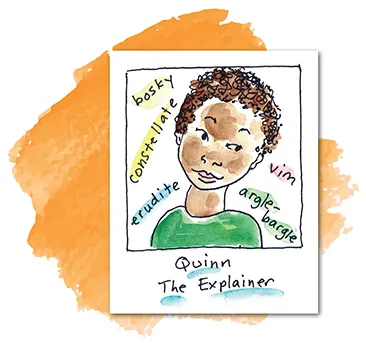
A Field Guide to Gifted Students
A Teacher's Introduction to Identifying and Meeting the Needs of Gifted Learners (Set of 10)
Charlotte Agell, Molly Kellogg
- 320 Seiten
- English
- ePUB (handyfreundlich)
- Über iOS und Android verfügbar
A Field Guide to Gifted Students
A Teacher's Introduction to Identifying and Meeting the Needs of Gifted Learners (Set of 10)
Charlotte Agell, Molly Kellogg
Über dieses Buch
A Field Guide to Gifted Students is a practical manual to the unique characteristics of gifted and advanced learners. Presented as a concise 32-page, full-color booklet available in sets of 10 print copies or a single eBook copy, this resource:
- Can be used in teacher workshops and other group professional learning settings.
- Assists educators in understanding and meeting the academic and social-emotional needs of gifted students.
- Includes a companion online facilitator's guide.
- Features practical tips based on current research and best practices.
- Is packed with illustrations, checklists, space to write notes, and a glossary of terms.
School can feel like the wrong fit for many gifted learners, but through learning how to notice and support gifted students' diverse traits and needs, educators can build ideal classroom climates for student success. Readers will understand how to identify giftedness and related traits, including twice-exceptionality, introversion and extroversion, perfectionism, sensitivity, and intuitiveness. The online facilitator's guide includes everything workshop leaders need to conduct a brief course for classroom teachers, coordinators, counselors, or even parents.
Häufig gestellte Fragen
Information
HAVE YOU MET ...
Olive, the Instant Intuitor?
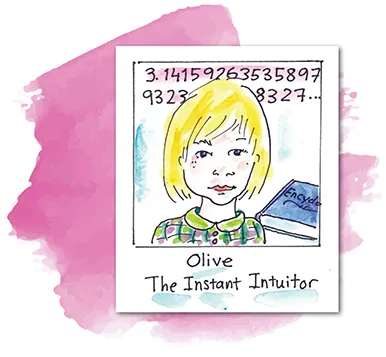
Interactions With an Olive
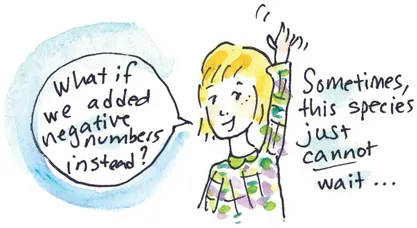
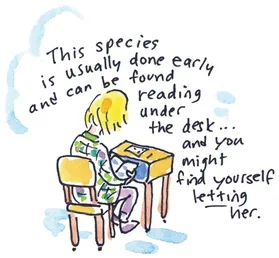
Tips for Working With an Olive
- Give Olive the freedom to move on to the next phase of learning while other students review ana practice.
- Structure mini Learning opportunities for Olive so she can connect her interests and/or curiosities to the topic. She could explore websites, read books, check out videos or museums online, and fill out an exit slip to share her learning. Remember, she still needs teacher guidance.
- Establish appropriate ways for Olive to let you know she knows something so that she can move on.
- Make sure Olive fills out an exit ticket so you know that Olive understands the topic. Ask her to explain why she finds the topic "easy."
- Instead of having Olive review material she already knows, ask her to fill out a proposal for an alternate project that will show she can apply her learning. Note that some Olives may not have the spatial skills to complete a project without scaffolding.
- Provide Olive with an audience to share her skills and learning. This audience may vary depending on if your Olive is of the extroverted or introverted variety.
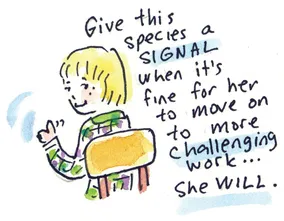
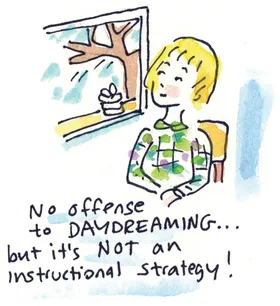
Field Notes
Louis, the Super Connector?
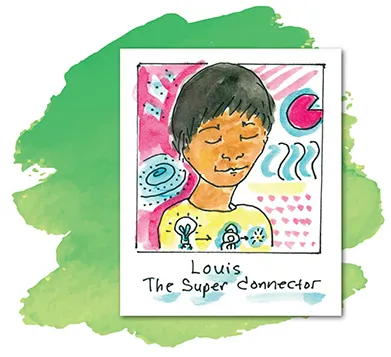
Interactions With a Louis
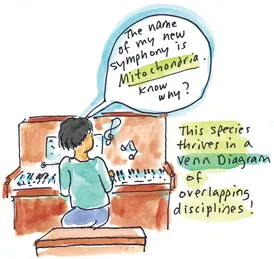
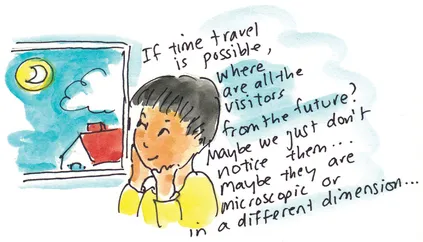
Tips for Working With a Louis
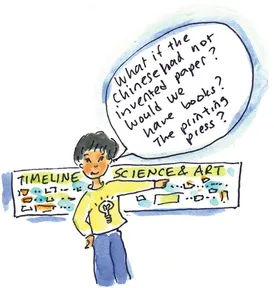
- Provide Louis with avenues to move to higher Levels of thinking quickly because he'll master basic concepts at first glance. Be prepared: He may try to argue his way out of drill-and-practice activities, and application is always more valuable.
- Give Louis room to wonder—he's full of interesting questions! Provide him with appropriate tools, like a notebook or sticky notes to record thoughts.
- Keep an open mind—Louis is bound to pose unexpected questions or share big thoughts with you. Provide parameters for sharing—could he pose one farflung query a day ... leave you one sticky note per class... swap a communication log with you?
- Consult with the foreign language teacher to brainstorm language enrichment options. Free language websites can be a fine resource
- Invite Louis to research a topic of his interest related to the curriculum and create a presentation for the class.
- Provide Louis with reading and other research material that connects disparate disciplines, such as science and history. He will appreciate the context because he is hungry for materials that provide this sort of connective tissue.
- Introduce Louis to complex strategy games (beyond chess) in which multiple elements are in interdependent motion. swap a communication
Field Notes
Quinn, the Explainer?
